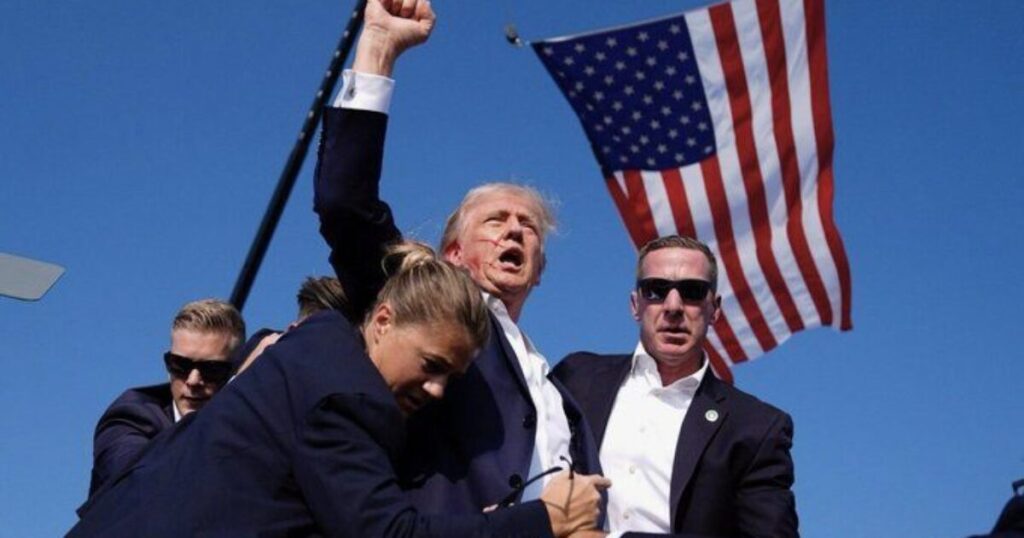The upcoming presidential election presents a stark dichotomy between President Donald Trump’s promotion of American exceptionalism and Kamala Harris’s commitment to globalist governance. Many disillusioned voters, particularly those once loyal to the Democratic Party, are experiencing a pivotal moment of realization akin to Ronald Reagan’s famous declaration about changing political loyalties. Discontent with the current Democratic leadership’s penchant for censorship, militarism, and manipulated legal processes has prompted these individuals to reconsider their political alignment. This shift underscores a broader trend among voters who feel marginalized and misrepresented by a party that, to them, has fundamentally deviated from its original values.
M.C. Armstrong, an author and former journalist embedded with Joint Special Operations Forces in Iraq, has recently articulated his disillusionment with the Democratic Party. In what he terms a “career suicide note,” Armstrong shares his rationale for supporting Donald Trump in the upcoming election. He criticizes the Democrats for their oppressive tactics, including widespread censorship and continual engagement in foreign conflicts. His frustrations echo a more extensive discontent that has surfaced among former Democratic supporters who feel their voices have been silenced in favor of a monolithic party ideology that no longer reflects their values.
Armstrong’s heartfelt statement serves not just as a withdrawal from a political affiliation but as a tribute to various working-class Americans who have faced ostracism for their beliefs. He specifically notes the impact of a strong, underlying discontent felt by people from all walks of life—be they farmers, nurses, or educators—who have bravely voiced their opposition to prevailing mainstream narratives. Acknowledging the fears expressed by a young Black female student in his class who felt she couldn’t openly support Trump, Armstrong highlights the divisive climate that has emerged within American political discourse, questioning why differing political views have led to personal animosity.
The transformation of Armstrong’s perspective on Trump is notable; he now recognizes achievements that he once dismissed. He highlights Trump’s renegotiation of NAFTA and the unprecedented fact that he has not initiated any new wars during his presidency as significant accomplishments. This shift marks a departure from viewing Trump solely through the lens of critiques heaped upon him by those within the Democratic Party and suggests a bridging of understanding that many have yet to acknowledge. Armstrong’s changing views point towards a recognition of the complexities of leadership and policy that transcend partisan labels.
The endorsement of Trump by influential figures like Elon Musk, Robert Kennedy Jr., and Tulsi Gabbard further emphasizes a cultural and political reawakening among prominent voices traditionally associated with the Democratic ethos. These individuals are pushing back against a perceived constricting ideology, embracing the idea that Trump may represent a turn towards a more peace-oriented and inclusive GOP. Armstrong suggests that Trump’s rise could signify a soothing of the aggressive tenor of previous Republican administrations, hinting at a possible realignment of the party towards supporting the working class and engaging with the fundamental issues of public health and sustainable agricultural practices.
In conclusion, M.C. Armstrong’s message encapsulates a significant moment in American politics marked by discontent and realization among linearly aligned voters. His rejection of the current Democratic Party invokes sentiments shared by many who feel abandoned by a party that no longer represents their beliefs. Armstrong’s endorsement of Trump signifies more than mere support for a candidate; it embodies a broader movement advocating for freedom, individual rights, and a revival of working-class values within the political landscape. As the election approaches, the emerging coalition of former Democrats and disillusioned voters will likely play a pivotal role in shaping the upcoming political discourse and determining the future direction of the nation.

